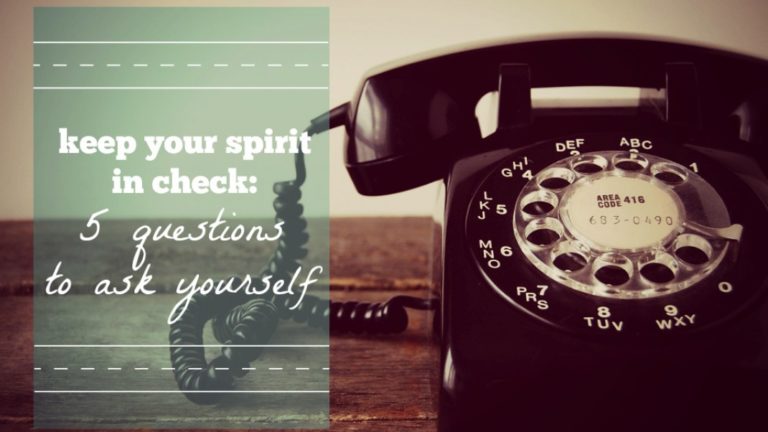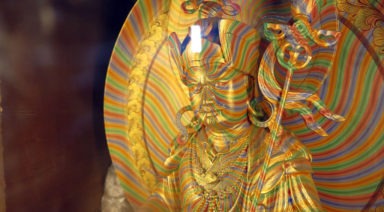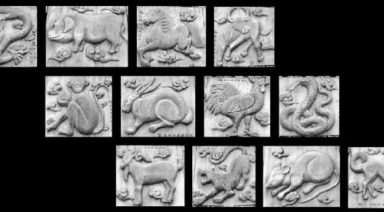Keep Your Spirit In Check: 5 Questions to Ask Yourself

Weaving our way through this journey we call life wouldn’t be something I call an easy task. I would say that it’s comparable to staying in shape, which takes a great deal of will power. However, with the guidance of the enlightened soul and identifying the boundaries of the ego, we are given these gifts by way of life lessons to keep ourselves aligned on a path of spiritual truths.
What is a spiritual truth? The truth is simple, but yet oh-so hard. It is pure love without attachment, without boundaries, and has been spoken since the beginning of time. This beautiful dance with life allows for our spirit to grow, pushing away the attachment of the “egoic mind,” operating out of the space of the “God Mind” or soul. It takes a great deal of courage and self-discipline to align with the truths of our soul. The following are five steps to get you in shape on the spiritual path.
Do I listen?
Have you mastered the art of listening? How much of your day do you truly listen to the world around you? Listening is one of our greatest senses, relaying a significant amount of information to feed our soul, but this tool is becoming endangered as we speak (pun intended).
When we listen closely, the world around us has many messages to deliver. However, in the age of information, we are so distracted and disconnected that we are losing our ability to truly listen. Access your ability to listen by asking yourself a few simple questions. What types of thoughts do you have while in a conversation with a loved one? Are you in a constant state of thought, readying your response instead of being present for the conversation? Do you feel uncomfortable if there is a silent pause in a conversation? Does silence make you feel uncomfortable?
If you answered “yes” to any of these questions, your listening skills are not as sharp as they could be. A good platform to enhance your listening skills is by spending quiet time in nature, which will restore some primal intuition. Additionally, start by observing your conversations without judgment. Just listen and see where that takes you. Oftentimes awareness is just the remedy to get you back to spiritual health.
Do I chase spirituality?
Are you constantly chasing the idea of a guru or spiritual teacher? I have known many who have “chased” spirituality all over the world, but the truth is already inside of you waiting to be discovered. Spiritual teachers and lessons come in all types of packages, most often in the most unexpected ways. It may not always be the metaphorical cross-legged, white bearded sage, but everyday we are blessed with experiences to grow and learn.
It could be learning patience as you sit in an unexpected traffic jam while you miss an important meeting, or maybe it shows itself as a difficult financial situation that will teach you how to release fear as it comes to money. Regardless of how the lessons come into our lives, it is important to dispel the idea of searching and move toward looking inward to embrace your lessons in all shapes and sizes.
Do I gossip?
Have you ever found yourself being pulled down the rabbit hole of gossip? It is so easy to gossip about others, but it takes a positive, conscious mind to move away from this behavior. Gossip is a way to seek false power, an insecure source of measuring up our lives.
Unfortunately, it is often the foundation that will hold a group together and it is all kinds of wrong. The answer is simple; hold yourself to a higher standard by conducting conversation as if everyone is present. Remember the words of the wise, “Do what is right even when no one is looking.” If someone in the group goes down the rabbit hole then you can just extend a hand to bring them back. There is no doubt that you will lose some friendships, as many friendships are bonded by gossip, but it feels so good on the inside to embrace this standard.
Do I get defensive?
Do you regularly see the other person’s point of view with compassion? Often times when something doesn’t go our way, we immediately try to make the other person wrong. As it may be a natural reaction, being defensive will get you nowhere. Try to get a deeper understanding of where the other person is coming from will take you miles along the road of life lessons. We have a lot to gain from trying to understand walking in another’s shoes, but don’t get lost.
Do I take things personally?
Do you find yourself taking things personally? The concept of the mirror is a very difficult one to embrace. It is a form of measure to help progress us on our journey. However, when we take things personally, it is quite easy for our mirror to break.
Another way to work around this until you can honestly assess where you are on this path is to connect with the idea of “I.” The world around us is set up to help us grow and evolve our soul. Training wheels are not just for learning to ride a bike; we can always reach for training wheels in life, just till we are ready to move forward on our path.
Look at the world around you as a continuous lesson. If someone cuts you off instead of reacting simply say, “Why did I do that?” When you look at everything in the light of “I,” it makes it easier to embrace instead of constant and emotionally draining reaction. Many spiritualists believe that everything in life happens for a reason. For this reason alone, see the gift instead of being the victim. The road will be much more fulfilling.
It isn’t always easy to keep ourselves in spiritual check. It is important to have the right tools on this path to retraining the brain to support our soul. There are a number of small tools that have great impact, but starting small isn’t as overwhelming as trying to change it all in one sitting. Baby steps, compassion, and understanding are the keys to spiritual growth.
The Rainbow Body Phenomenon in Tibetan Buddhism

The Old and New Testaments of the Bible, as well as ancient Greek and Egyptian texts, include stories of those who defied death through forms of ascension, from Jesus Christ’s resurrection to Heracles’s ascent to Mount Olympus to the god of the afterlife, Osiris. However, the most compelling tales of transcendence are found in the accounts of the Tibetan Buddhist rainbow body tradition.
While ascension stories are from the distant past, i.e., Enoch and Lazarus (Old Testament), it is debated whether they are fact or myth; examples of rainbow body events from this century are documented and available. Some believe that ascension and attainment of the rainbow body are the same thing. Still, arguably, there are differences—the Tibetan Buddhist rainbow body is the result of years of specific, disciplined practice with a motive of profound compassion for all beings.
In Tibet and Central Asia, the Buddhist rainbow body tradition goes back to the 8th century, beginning with the great master Padmasambhava, but 20th and 21st-century documentation shows that this is no myth or legend—practitioners, from the highest lamas to the most humble laypeople, have attained rainbow body.







